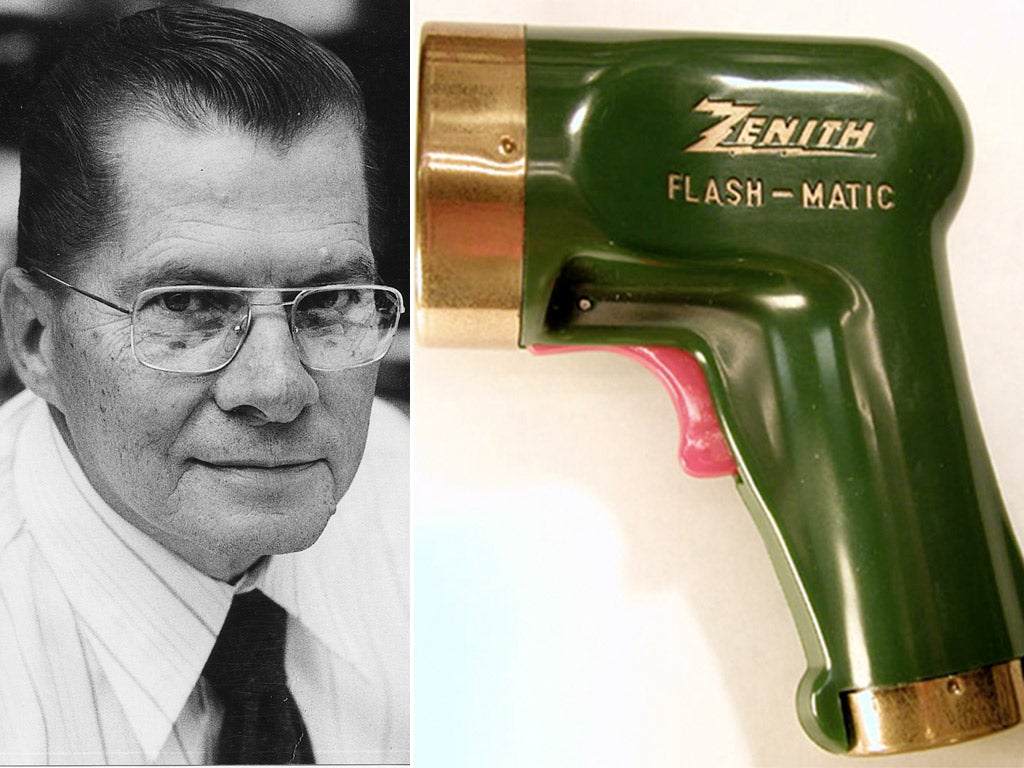A lament for the the man who created the couch potato

Your support helps us to tell the story
From reproductive rights to climate change to Big Tech, The Independent is on the ground when the story is developing. Whether it's investigating the financials of Elon Musk's pro-Trump PAC or producing our latest documentary, 'The A Word', which shines a light on the American women fighting for reproductive rights, we know how important it is to parse out the facts from the messaging.
At such a critical moment in US history, we need reporters on the ground. Your donation allows us to keep sending journalists to speak to both sides of the story.
The Independent is trusted by Americans across the entire political spectrum. And unlike many other quality news outlets, we choose not to lock Americans out of our reporting and analysis with paywalls. We believe quality journalism should be available to everyone, paid for by those who can afford it.
Your support makes all the difference.With the news that the inventor of the remote control, Eugene Polley, has died, couch potatoes around the globe have mourned his passing.
The 96-year-old's death was announced by the Zenith Electronics Corporation, where Polley began his career in the stockroom before moving into engineering and eventually inventing the device, called the Flash-Matic, in 1955, which worked by pointing light at photo cells in the corners of the screen, activating the picture and sound and changing channels. And while these days it's not uncommon to spy numerous remote controls on a coffee table (the average household has four), at the time, the gun-like appliance was revolutionary.
"A flash of magic light from across the room (no wires, no cords) turns set on, off, or changes channels... and you remain in your easy chair!" proclaimed the original ad. "You can also shut off long, annoying commercials while picture remains on screen! YOU HAVE TO SEE IT TO BELIEVE IT."
While it may be the cause of countless domestic disputes, the remote control has also transformed the lives of the elderly and those with disabilities. And the very idea of Sky would be inconceivable without such a device. It also comes with negative connotations, embodying the slacker, and being a reminder of modern man's laziness.
Arguably, the remote has even transformed the way television is produced: programmes are made to be attention-grabbing, the makers fully aware that viewers can take their valuable ratings elsewhere with the press of a button. A 2009 survey discovered that nearly one in six people in the UK said that if their remote control were broken, they would continue watching the same channel rather than get up.
Polley was paid a $1,000 bonus for his work on the original remote and went on to earn 18 patents during 47 years career at Zenith. However, soon after Polley's invention, his device was supplanted by a more enduring one made by his colleague Robert Adler. Over time, Adler has often been named as the sole inventor of the remote, something that long rankled with Polley. Still, he was fiercely proud of his work, in 2002 telling one interviewer: "The flush toilet may have been the most civilised invention ever devised, but the remote control is the next most important. It's almost as important as sex."
Join our commenting forum
Join thought-provoking conversations, follow other Independent readers and see their replies
Comments